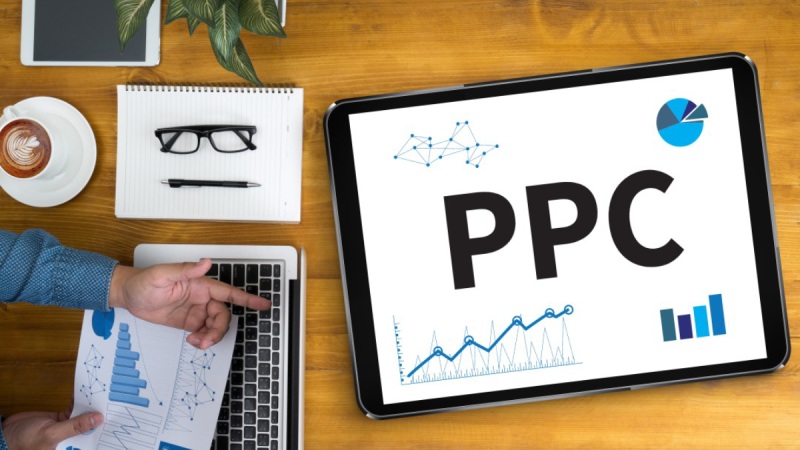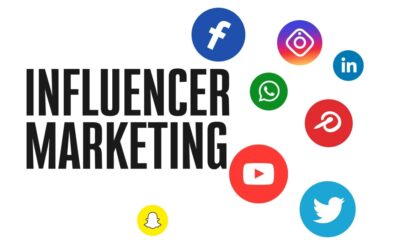Tech
10 PPC (Pay-Per-Click) Marketing Strategies for Small Businesses

Pay-per-click (PPC) advertising allows you to receive great results with a small investment. The correct strategies are all you need. PPC enables brands to run their advertising on sites like Facebook and Google for small businesses.
You can efficiently reach potential customers because you only have to pay when a user clicks on your advertisement. However, managing PPC as a small business owner requires a lot of labor because there are so many well-known companies in the digital market. Many small business owners fear that they will squander their limited resources on ineffective marketing campaigns and that they must improve their skills to compete successfully.
You might look for strategies or tips to increase traffic significantly without going over budget. Every significant and little facet of PPC for small businesses is covered in this article. Your industry will benefit greatly from these ten tips.
What is PPC (Pay-Per-Click) Marketing?
PPC marketing is a type of digital advertising in which marketers are charged a fixed sum each time a user clicks on their advertisement. When someone searches for keywords associated with the advertiser’s company, it works. Ads containing related terms, for example, will show up at the top if a user types in “PPC management for small business.”
On search engines, a digital marketing agency can produce tailored advertisements for “SEO services near me.” When someone clicks on the ad, they are taken to the agency’s website, where they can easily schedule a consultation. With this cost-effective strategy, the agency can only make a payment when a prospective customer clicks through the advertisement to express interest.
Another important feature for small businesses is that PPC advertising benefits small, medium, and large enterprises. However, small businesses often require assistance in putting effective strategies into practice because they lack the necessary resources and knowledge. In this case, a marketing agency can provide vital guidance and support.
10 Professional PPC Strategies Tailored for Small Businesses
Small businesses may find it difficult to get started with PPC lead generation. A return on investment is something that many owners desire. However, with the correct strategies, your small business can reap amazing benefits. These ten professional ideas are specifically tailored for PPC for small businesses.
- Begin with a Small Budget
Take market competitiveness into account when calculating the budget for your small business PPC campaign. Some brands are more reputable and have sizable followings. As a result, avoid allocating your whole budget to a single campaign.
To reduce risk, monitor performance, and gain insight from your results, start with a smaller budget. Save time on failed campaigns by learning from your errors. Selecting the appropriate ad networks, including Facebook, Instagram, and Twitter, will help you target your audience more precisely and stay within your budget. You can learn how to properly set your budget.
- Focus on Particular Keywords
Using keyword targeting to run PPC ad campaigns is an efficient method. Small business owners often require assistance in choosing the wrong keywords, which can lead to a waste of advertising budgets. Prioritize intent-based keyword targeting when utilizing PPC for small businesses. Keywords are terms that consumers look up when looking for a certain product or service. Your entire campaign could be ruined by a small error in your keyword research.
Don’t target highly competitive general keywords; instead, concentrate on the ones that your audience specifically wants. For example, target more specialized keywords like “men’s bags” or “women’s bags” rather than “bags.” These keywords are typically less expensive and more competitive. Therefore, while conducting PPC for small businesses, give priority to targeting intent-based keywords.
- Use Strong Language
Your small business PPC advertisements should provide a clear description of your goods or services. Begin developing your marketing to assure prospective customers of the value they will obtain and devise plans to address their fears.
Your writing should be captivating, passionate, and concise. Make sure you utilize clear, basic language and concentrate on creating a headline that captures the attention of your readers.
- Include a Clear Call to Action
Ad copy descriptions, pictures, and calls to action (CTAs) are just a few of the elements that must be carefully considered for PPC lead generation to be effective. A compelling call to action (CTA) can calm anxiety and motivate prospective customers to take fast action.
But don’t stuff your ad with too many calls to action. Instead, concentrate on one clear, concise, and engaging CTA. Among the examples are:
Instant Download
Call Us Now
Book Your Free Consultation
- Pay Attention to PPC Mobile Ads
Many consumers are concerned that as mobile traffic increases, websites may become harder to use on their phones. Users become frustrated and leave a website that isn’t mobile-friendly, which raises your bounce rate.
When looking for PPC lead generation, make sure your website is responsive. After clicking the ad, users should find your website easy to use.
- Use Local Keywords
Keep local keywords in mind when managing PPC for small businesses. Buyers’ concerns about finding relevant services in their neighborhood can be lessened by local targeting. As a result, the local names of the cities where your business is located must be used.
Local keywords include, for example:
SEO Services Agency in Minnesota
PPC Services Provider in California
Coffee Shop in Dubai
Use phrases like “best shoes in Minnesota” to attract clients who are specifically looking for this product, for example, if you want to produce PPC leads for your shoe store in Minnesota.
- Use Negative Keywords
Negative keywords assist you in focusing on the appropriate audience, even if you should use as many positive keywords as you can. By using negative keywords, you can make sure that those who aren’t interested in your goods won’t see your advertisement. This prevents small businesses from wasting money on useless clicks.
For example, the ad won’t show up for those looking for old bikes if you make “old” a negative keyword for your bikes.
- Examine Your Quality Score Frequently
For small businesses using PPC, Google’s quality score is a great metric. It aids marketers in evaluating the overall effectiveness of their ads. Keeping up a high rating might assist reduce wasteful spending and concerns about spending on ineffective advertisements.
Since small businesses frequently have limited funding, monitoring quality scores on a regular basis might help cut down on unnecessary ad spending. A high-quality score means that your advertisement is effective and relevant to the intended audience.
- Hire a PPC Strategist
Without a committed ad specialist, PPC for small business management can be extremely difficult. Maintaining a partnership with a digital marketing agency will provide the assistance required to optimize the campaign’s success. Pay-per-click (PPC) campaign management calls for knowledge, patience, and study. As a result, think about hiring a PPC specialist to manage every aspect, from setting up ads to optimizing for rapid sales. These qualified experts have the know-how to maximize ad campaigns.
- Track and Analyze Results
As previously stated, monitoring your PPC performance is essential for the effectiveness of your ads as a whole. By assisting smaller businesses in adapting and striving for improvement, repeated analysis can eliminate any uncertainty regarding economic deterioration. Ignoring ad monitoring can result in large losses in website visitors and ad budgets. As a result, pay close attention to each advertisement to make sure it performs as you would like.
You may create more successful ads by paying attention to the purchasing habits of your audience.
Conclusion
In conclusion, PPC (Pay-Per-Click) advertising greatly raises consumer awareness of your offering. You can effectively address your clients’ worries regarding their options. People who are actively looking for something are catered to by PPC, particularly through online advertising and search engines.
Using PPC campaigns to target customers directs their interactions to your product or service page instead of a generic one. Positive PPC satisfaction has a significant impact on users’ views and intentions to continue searching.
-

 Business3 weeks ago
Business3 weeks agoPrakash and Kamal Hinduja: Driving Social and Environmental Change
-
Education4 weeks ago
Fred DuVal: University Leadership as a Critical Resource for Climate Change Research and Life-Saving Solutions
-

 Cryptocurrency3 weeks ago
Cryptocurrency3 weeks agoDesigned For The Masses: How Akasha (AK1111) Is Unlocking Crypto For The Next Billion Users
-

 Health3 weeks ago
Health3 weeks agoThe Hinduja Brothers Commitment to Global Health: Empowering Communities Across Borders
-

 Cryptocurrency4 weeks ago
Cryptocurrency4 weeks agoNexaglobal & Future World Token (FWT): Could This Be the Next Big Crypto Investment of 2025?
-

 Startup2 weeks ago
Startup2 weeks agoCost-Saving Strategies Every Small Business Owner Should Know to Boost Efficiency
-

 Startup3 weeks ago
Startup3 weeks agoMatthew Denegre on the Art of Deal Sourcing: Finding the Right Investment Opportunities
-

 Health2 weeks ago
Health2 weeks agoSt. John’s Community Health Examines Innovations in Pharmacy Access





















